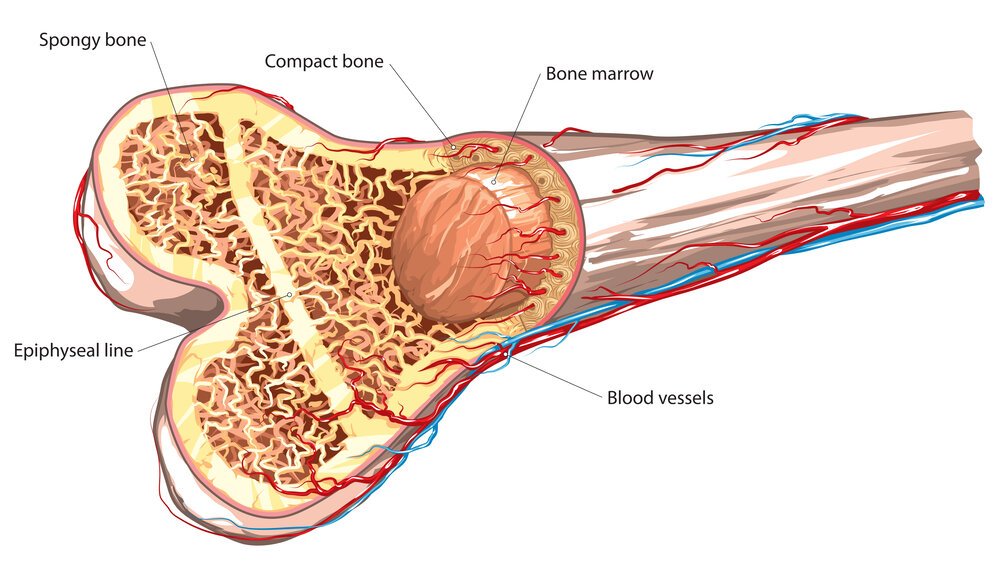The Important Link Between Bone Health & Running: Strategies to Improve Bone Density
As adults, we often prioritize cardiovascular fitness and muscle strength when it comes to our exercise routines. However, an aspect that is often overlooked is bone health. For adult runners, maintaining strong and healthy bones is crucial, as running is a high-impact activity that places significant stress on the skeletal system. In this article, we will explore the importance of bone health for adult runners and provide specific strategies to improve bone density and ensuring a strong foundation for a lifelong adventure of running.
Bones are the framework that supports our bodies and enables us to move. For runners, strong bones are vital as they help absorb the force generated during each foot strike. Regular aerobic exercise, weight-bearing strength training, and participating in other multi-planar sports, helps promote bone density and strength, reducing the risk of fractures and osteoporosis. As we age, our bone density naturally declines, making it even more crucial to prioritize bone health.
Many athletes are surprised that running alone isn’t enough to increase bone density. It may be beneficial for a brand new runner just getting into the sport, however, it becomes less effective the more you run. This is based on the research that states bone responds best to movements in different planes of motion, consisting of small bouts of high impact loads with a rest period, and loads that exceed the bones minimal strain threshold. Therefore, it’s important to weigh in how you can incorporative a variety of high impact exercise in your routine since that will likely lead to the best long-term results.
Strategies to Improve Bone Density for Adult Runners
Proper Nutrition: A well-balanced diet plays a significant role in maintaining bone health. Ensure an adequate intake of calcium, which is crucial for bone mineralization, through sources like dairy products, leafy greens, and fortified foods. Vitamin D is essential for calcium absorption, so include foods like fatty fish, fortified cereals, and eggs in your diet. Additionally, sufficient protein intake supports muscle and bone health.
Strength Training: Incorporate weight-bearing exercises and strength training into your weekly routine to supplement your running. This includes activities like resistance training, bodyweight exercises, and plyometrics. These exercises stress the bones and stimulate bone growth. Focus on exercises that target major muscle groups, such as squats, lunges, and deadlifts, as they place a more axially-loaded stress on the skeleton while improving muscle mass, balance, and functional independence.
Cross-Training: Engaging in different forms of exercise can help reduce the risk of overuse injuries while promoting overall bone health. Include low-impact activities like swimming, cycling, or yoga on non-running days. These activities provide an opportunity to strengthen muscles, improve flexibility, and enhance cardiovascular fitness without excessive stress on the bones. Although they won’t directly increase bone strength, it’s important to find alternate forms of exercise to remain active without overstressing the body.
Gradual Progression: Avoid sudden increases in training volume or intensity, as it can lead to overuse injuries and negatively impact bone health. Gradually increase your running mileage and intensity to allow your bones to adapt and strengthen over time. Listen to your body and incorporate rest days into your training schedule to promote recovery and prevent excessive stress on the bones.
Impact Variation: Vary your running surfaces to expose your bones to different impact forces. Running on softer surfaces like grass or trails can reduce the stress on your bones compared to running on pavement. However, it's essential to maintain a balance between impact variation and the need for consistent training surfaces to avoid excessive strain on your muscles and joints.
Adequate Recovery: Give your body ample time to recover between runs. Adequate rest and sleep are crucial for bone health and overall recovery. During rest periods, the body repairs and rebuilds bone tissues, enhancing bone density and strength.
For adult runners, prioritizing bone health is a crucial aspect of maintaining a long and sustainable running journey. By adopting strategies such as proper nutrition, strength training, cross-training, gradual progression, impact variation, and adequate recovery, runners can significantly improve their bone density and reduce the risk of injuries. Remember, strong bones form the foundation for your body to remain healthy & active for years to come.
If you’re looking for a science-based program to increase bone strength, reduce the likelihood of injury, and improve running performance, join us on Monday, July 3rd as we kick off ‘Building Better Bones.’ You’ll receive the guidance & accountability needed to invest in a future with healthier and more resilient bones.


